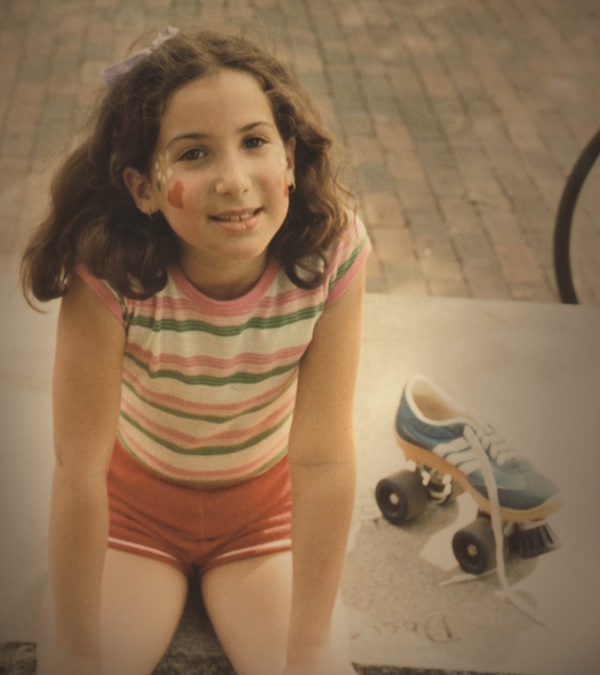 Where differences in learning styles and abilities exist within families, an opportunity also exists: the chance to understand and embrace how those differences have shaped family dynamics and interpersonal relationships. In Read Me Differently, filmmaker Sarah Entine, MSW unpacks this concept with exceptional candor, vulnerability, and even a touch of humor, exploring the effects of dyslexia and attention-deficit hyperactivity (ADHD) on three generations in her family—herself included.
Where differences in learning styles and abilities exist within families, an opportunity also exists: the chance to understand and embrace how those differences have shaped family dynamics and interpersonal relationships. In Read Me Differently, filmmaker Sarah Entine, MSW unpacks this concept with exceptional candor, vulnerability, and even a touch of humor, exploring the effects of dyslexia and attention-deficit hyperactivity (ADHD) on three generations in her family—herself included.
Diagnosed with dyslexia at age 6, it wasn’t until Sarah was in graduate school for social work, 23 years later, that she fully began to realize the scope of her condition. With compassionate curiosity, she looked closely at her family system and discovered that the story was much larger than her. What she found surprised her, but it also inspired an honest and heartfelt examination of what it means to be understood and accepted by those who matter most. This work led to the production of her 2009 documentary release.
Today, Sarah presents Read Me Differently at conferences across the country, including those for the International Dyslexia Association and the Learning Disabilities Association of America. She also facilitates workshops and has been a guest presenter for audiences including students, teachers, parents, and mental health and social service providers.
GoodTherapy.org recently spoke with Sarah about her experiences with dyslexia, learning difficulties, and the impact they have on families like hers.
1. How common is dyslexia and why should therapists care?
Over 40 million adults in the U.S. are dyslexic, but only 2 million are aware that they are. Dyslexia is not just a reading challenge where letters are reversed. Each person with dyslexia has his or her own unique profile. It’s similar to autism in that dyslexia is a spectrum that goes from mild to more severe difficulties. It is a processing difference in the brain that affects decoding letters, sequencing, verbal and written expression, and working memory.
Working memory is probably one of the most misunderstood aspects of the dyslexic experience. It affects remembering what people say, sequencing events, and the ability to retell information. If someone has weak working memory, it can dramatically affect his or her social life and self-esteem. It can feel overwhelming to try to be in sync with the pace of life when your mental processing speed is slower and your working memory is weak. As a result, there can be a lot of anxiety associated with having a learning difference, especially around meeting other people’s expectations. Sometimes dyslexic people mask these challenges by withdrawing, acting out, or turning to drugs and alcohol to escape these painful feelings.
2. How are families impacted when a family member has a learning disability?
It is important for therapists to understand that learning disabilities are not just an academic experience that affects school performance, but they can significantly affect family life as well. For example, slow working memory can make it hard for a child to follow directions at home, like “go set the dinner table.”
“It is important for therapists to understand that learning disabilities are not just an academic experience that affects school performance, but they can significantly affect family life as well.”
Since families often involve more than two people, working memory and slow auditory processing is taxed even more because the person with learning differences has more verbal information to track. These challenges can make everything harder, like even answering questions about how your day is going. The challenges in these subtle interactions can really start to shape family relationships in unhealthy ways.
Another way learning differences affect families is connected to executive functioning difficulties—which can impact getting to places on time or managing time and responsibilities. As these things accumulate (or snowball), they can be misunderstood by other family members who might think, “You’re lazy. You’re not trying. You’re just a quiet kid …” But there’s more happening here.
Therapists need to have a way of evaluating learning disabilities when they meet with individual clients and also families. In my personal experience, I did therapy with my mother in my twenties trying to deal with our communication issues and the tension in our relationship. While we talked about many issues, we never addressed what needed to be talked about—namely, the dyslexia that runs in our family and how it impacted our relationship.
3. What strategies do you recommend for people to reduce the stress associated with living with a learning disability?
What works is to demystify your experience, and part of that is to really familiarize yourself with your dyslexia or learning difference. Then it’s helpful to also understand the emotional overlay or the triggers to the anxiety that come when your mental processing is working differently than other people.
I also have a meditation practice that has been helpful for me for many reasons. One is knowing and understanding the truth of impermanence—“this, too, shall pass,” as they say in the 12-step programs. Having awareness to recognize my own reactivity and to be able to notice how that feels in my body instead of adding more self-recriminations into the mix. And lastly, to develop the ability to respond compassionately to myself and other people when I experience difficulties or when feelings like anger or hurt arise from misunderstandings.
Finally, it’s important to remember that the news about dyslexia is not all “bad”! While we’ve looked at some of the challenges here, the good news is that dyslexic people are highly intelligent and often very creative. The book The Dyslexic Advantage, by Brock Eide and Fernette Eide, outlines many of the strengths associated with dyslexia.
Reference:
Austin Learning Solutions. (n.d.). Dyslexia Facts and Statistics. Retrieved from http://www.austinlearningsolutions.com/blog/38-dyslexia-facts-and-statistics.html
© Copyright 2015 GoodTherapy.org. All rights reserved. Permission to publish granted by GoodTherapy.org Staff

 Same Difference: Embracing a Diversity of Learning Styles
Same Difference: Embracing a Diversity of Learning Styles What Is ADHD? What Is ASD? How to Tell the Difference
What Is ADHD? What Is ASD? How to Tell the Difference Music, Memory, and Mind: Deepening Our Understanding of Dyslexia
Music, Memory, and Mind: Deepening Our Understanding of Dyslexia